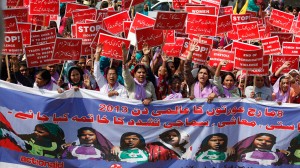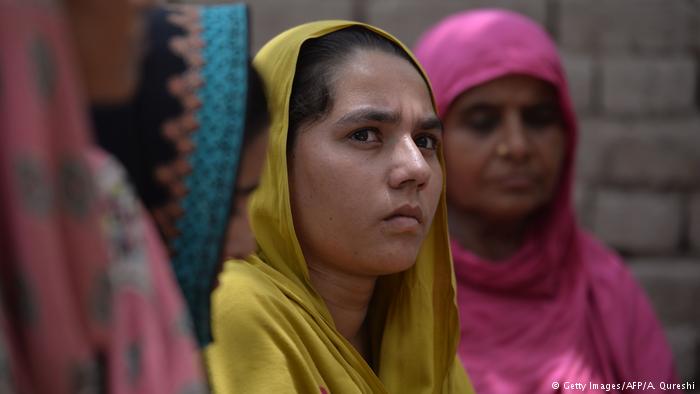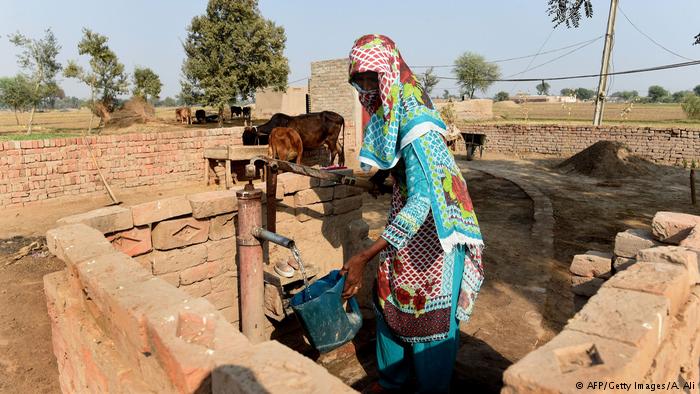Great Expectations: Pakistan’s women politicians
If asked to relate Pakistan’s political situation to a literary work or character, my first suggestion would be, something Orwellian. Or maybe, an Aldous Huxley novel. What I would not compare it to, is Dickens’ Miss Havisham from Great Expectations; the old, frigid woman who is impossibly fixated on her past and refuses to let go. On the eve of elections 2013, however, I came across an article that did just that. According to the article, Pakistan, just like Dickens’ fictional character was in denial and living in the past; plus the bleak future it predicted for the country was as gruesome as Ms. Havisham’s. Despite being aware of the superficiality and hollowness of the slogans for change, I was still slightly indignant at the parallels drawn by the author. For me the 2013 elections had a few saving graces; a high expected female voter turnout, first time contestants like Veeru Kohli and Badam Zari, a transgender candidate, and women who would thwart the extremist forces by using their right to vote. In all the doom and gloom of Pakistan’s pre-election atmosphere, women like Hajiani Lanjo and Ruqqaya Hashmi were the redemption that was desperately needed.
While the courage and commitment displayed by each of these extraordinary women was nothing short of inspirational, the post-election situation of women politicians seemed to fall short. Despite having more registered women voters than the previous elections; 35,637,711 women on the 2008 final electoral roll, compared to 37,597,415 on the 2013 final electoral roll; the latter still did not include around 20% of eligible Pakistani women voters. More disheartening was the fact that these numbers did not translate into physical representation of women in many parts of the country. The morning after the elections, news from various locations started coming in which revealed that in cities like Sahiwal, Khanewal, Upper and .Lower Dir, women were prohibited from stepping out of their houses to vote on election day. In Sahiwal and Khanewal despite the registration of 645 and 1,260 women respectively, not a single woman was allowed to cast her vote. Similar attempts to disenfranchise women from the electoral process were also carried out in Bunair, Upper Dir and Lower Dir, where the disparity between the number of registered women voters and the number of women who voted was staggering. In this regard, Mr. Siraj-ul-Haq the elected candidate from Lower Dir presented a very weak defense; he said that women were kept from voting due to intelligence received by one political party about the threat of potential women suicide bombers. This inane argument, by a man who suggested segregating women politicians of KPK in a separate assembly, is not surprising.
It was encouraging to note that the number of women candidates contesting elections on general seats increased from 64 women in 2008 to 161 in 2013. The number of women contesting this year was double that contesting five years ago. In spite of an increase in women candidates, the number of elected women in 2013 was significantly less than that in the last elections. The figures dropped from 16 in 2008 to 6 in 2013 for the National Assembly. These 6 women included 3 each from PML-N & PPP, whereas among the 10 women who made it to the four provincial assemblies 8 were in Punjab, 1 each in Sindh & Balochistan and none in Khyber Pakhtunkhwa. While increased numbers do not necessarily mean election of more women, it is certainly a step in the right direction that reinforces the need for greater women participation in the elections and the political system. Moreover the presence of more women legislators is also said to ensure legislations for improved education and health care for children, women and minorities.
The cabinet formation that took place in the capital and in the provinces did not boast many female names. In KPK an all male cabinet was seen with no women ministers. In Sindh and Punjab, 1 and 2 women were given portfolios of special education, women development and social welfare and population welfare respectively. These portfolios also signify the marginalization and pigeonholing that female politicians have to put up with in the political arena. Disheartening to note was the fact that from a well rounded choice of 33 women MNAs, only two women in the federal cabinet were given ministries; that too of state.
It is clear from the post-election situation in Pakistan that the country that boasts a woman Prime Minister, woman speaker of National Assembly, and a few women leaders of political parties, still has a ways to go before women at the grass-root level can be truly empowered through participation in politics. Despite great expectations about women’s increased participation and some truly exceptional cases of women crusading for their rights in adverse conditions, the situation following the elections proved disappointing. Rather than increasing women participation in the political sphere, it was observed that most parties chose to keep politics a largely male dominated and patriarchal turf. It would seem then that the author of the article was not that far off in a comparison between Pakistan during elections, and Ms. Havisham; as both seem to be unable to escape their past, one from the betrayal of a former lover and the other from the regressive practices of previous rulers. The distinction however, lies in the effort. Unlike the old lady, who is still wearing the wedding gown she was jilted in, Pakistan or rather, some brave folk in Pakistan are trying to doff the clothing that has kept them from progressing. It can only be hoped that collectively, Pakistan is quicker than the fictional character in its epiphany to put the past behind it and embrace a brighter, more equitable and progressive future.
Author: Sana Hussain
Sana Hussain is a literature graduate currently working as a Research Associate at Uks Research Center. She is also a freelance writer who has contributed articles to various publications.
This blog series, produced by Uks Research Center, in collaboration with FES, is such one effort which has been started for the benefit of women, women in politics and the people of Pakistan in general. You can get in touch with the FES or the Uks via email (info@uksresearch.com or info@fes-pakistan.org) or via phone (+92-51-2850906). A radio program series on women’s issues can also be heard on Uks’s website at www.uksresearch.com.







